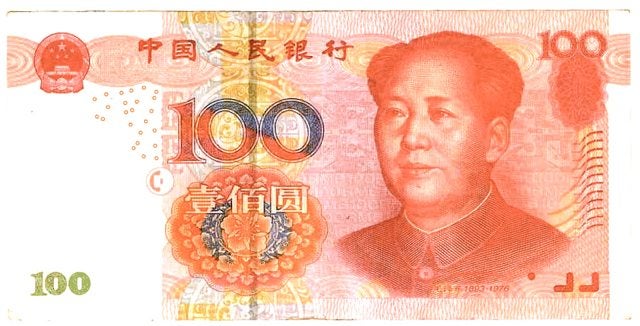
The People’s Bank of China (PBoC), the country’s central bank, has reportedly injected CNY950bn ($145bn) of one-year cash into the banking system as cash supply tightens.
To ensure banks have sufficient liquidity, the Chinese government is providing the funds via a medium-term lending facility (MLF), Bloomberg reported.

Access deeper industry intelligence
Experience unmatched clarity with a single platform that combines unique data, AI, and human expertise.
The funds will offset the liquidity gap of over CNY600bn ($92bn), which will mature by the end of this month.
This is the fifth consecutive month of net injections made via the lending facility with an unchanged interest rate of 2.95%, the report added.
On or around 15th of each month, the central bank conducts MLF operations.
This month, on 7 December 2020, one-year funds worth CNY300bn were matured, while another CNY300bn is due on 16 December.

US Tariffs are shifting - will you react or anticipate?
Don’t let policy changes catch you off guard. Stay proactive with real-time data and expert analysis.
By GlobalDataSeparately, PBoC said that it has exhausted a net CNY50bn in short-term funding by allowing most of its seven-day reverse repurchase agreements mature.
Chinese lenders typically require additional cash at the end of the year as they withhold it for regulatory checks.
Following a series of corporate defaults, the need for maintaining the liquidity amount in the financial system has become a pressing issue for China.
Currently, banks need another CNY2.4trn ($366.6bn) to repay the short-term interbank loans and buy government bonds, the Bloomberg report added.
Citic Securities head of fixed-income research Ming Ming said: “Banks are still under rather big funding pressure. The move was not in conflict with the authorities’ plan to exit pandemic-related emergency measures.”
Last month, PBOC deputy governor Pan Gongsheng said that exiting emergency support measures was only “a matter of time” and “necessary.”
As per its policy, PBoC gradually reduces the stimulus to alleviate the amount of debt in the economy.
This has increased the money-market rates, resulting in higher borrowing costs for government bonds.







